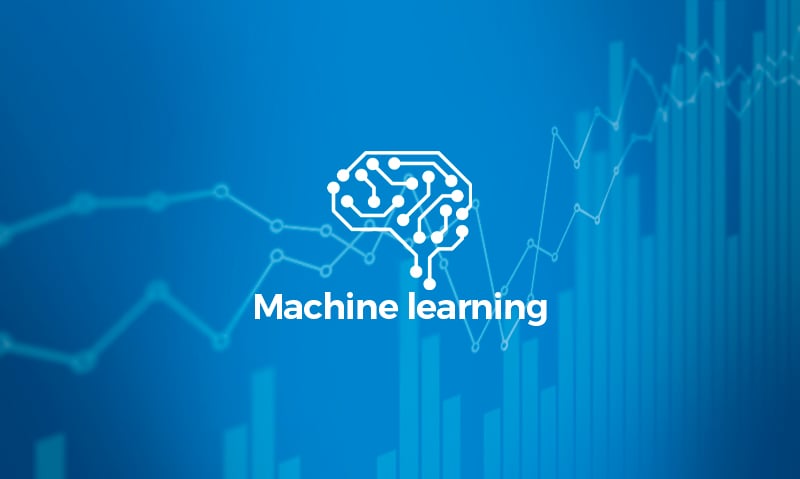
Machine Learning: Revolutionizing Industries with Data-Driven Innovation
In today’s rapidly evolving technological landscape, machine learning is at the forefront of transforming industries. Machine learning (ML), a subset of artificial intelligence (AI), enables systems to learn from data and improve over time without explicit programming. This capability is unlocking unprecedented opportunities across various sectors, from healthcare and finance to marketing and manufacturing. As machine learning continues to advance, its potential to optimize processes, enhance decision-making, and drive innovation grows exponentially.
Understanding Machine Learning and Its Applications
Machine learning is a method of data analysis that automates analytical model building. It involves algorithms that can learn from and make predictions or decisions based on data. The key feature of machine learning is its ability to improve its performance as it processes more data, becoming more accurate over time iowa headlines.com. This makes machine learning an invaluable tool for businesses seeking to extract insights from large and complex datasets.
In various industries, machine learning applications are becoming indispensable. For example, in finance, machine learning algorithms are used to predict market trends, detect fraudulent transactions, and optimize trading strategies. Similarly, in healthcare, machine learning is applied to diagnose diseases, recommend treatments, and personalize patient care. As more industries embrace machine learning, its applications will continue to evolve and expand.
The Role of Machine Learning in Business Optimization
Machine learning plays a critical role in optimizing business operations by automating routine tasks and providing actionable insights. Companies can use machine learning to analyze large volumes of data and identify patterns that would be difficult or time-consuming for humans to detect. This enables businesses to streamline operations, reduce costs, and improve overall efficiency.
For instance, in supply chain management, machine learning can predict demand patterns, optimize inventory levels, and enhance delivery schedules. In marketing, machine learning algorithms can analyze consumer behavior and preferences to target the right audience with personalized content. By harnessing the power of machine learning, businesses can make smarter decisions that drive growth and improve profitability.
Machine Learning and Predictive Analytics
One of the most powerful applications of machine learning is predictive analytics. By using historical data and training algorithms, machine learning can forecast future trends and outcomes with remarkable accuracy. This capability is transforming how businesses approach decision-making, enabling them to anticipate challenges and opportunities before they arise.
In industries such as retail, machine learning can predict consumer buying behavior, allowing companies to adjust their inventory and pricing strategies accordingly. Similarly, in insurance, machine learning models can predict claims patterns, helping insurers assess risk more effectively. Predictive analytics powered by machine learning empowers businesses to make proactive decisions, reducing uncertainty and improving strategic planning.
Enhancing Customer Experience with Machine Learning
Customer experience is a critical factor in business success, and machine learning is increasingly being used to enhance this aspect. By analyzing customer data, machine learning algorithms can provide insights into customer preferences, behaviors, and needs. This information allows businesses to deliver more personalized and relevant experiences, ultimately fostering greater customer satisfaction and loyalty.
For example, machine learning is widely used in e-commerce to recommend products based on past purchases and browsing history. In customer service, chatbots powered by machine learning can provide real-time support, resolving issues quickly and efficiently. By leveraging machine learning, companies can create more meaningful and engaging customer interactions that drive long-term relationships.
Machine Learning in Healthcare Innovation
Machine learning is having a profound impact on the healthcare industry, transforming how medical professionals diagnose, treat, and prevent diseases. By analyzing vast amounts of medical data, machine learning algorithms can identify patterns that may go unnoticed by human practitioners, leading to more accurate diagnoses and better patient outcomes.
Machine learning is also being used to develop personalized treatment plans based on individual patient data. For example, ML algorithms can analyze genetic information and medical history to recommend the most effective treatments for a specific patient. Additionally, machine learning is being used to predict the likelihood of certain diseases, allowing for earlier intervention and more proactive healthcare. As the healthcare industry continues to embrace machine learning, it has the potential to revolutionize the way care is delivered.
Machine Learning in Fraud Detection and Security
Security is a growing concern for businesses and individuals alike, and machine learning is playing a key role in detecting and preventing fraud. Machine learning algorithms can analyze transaction data and identify unusual patterns or behaviors that may indicate fraudulent activity. These systems can learn over time, improving their ability to detect fraud and reduce false positives.
In the financial industry, machine learning is used to detect fraudulent transactions by monitoring real-time data and flagging suspicious activity. Similarly, machine learning is applied in cybersecurity to identify potential threats, such as malware or phishing attacks, before they cause harm. As cyber threats become more sophisticated, machine learning offers a powerful defense mechanism, helping organizations safeguard their sensitive data and assets.
Machine Learning in Manufacturing and Automation
Machine learning is transforming the manufacturing industry by enabling greater automation, efficiency, and precision. With machine learning, manufacturers can optimize production processes, predict equipment failures, and enhance quality control. This leads to cost savings, reduced downtime, and improved product quality.
For example, predictive maintenance powered by machine learning allows manufacturers to monitor the condition of their machinery and predict when it is likely to fail. This enables businesses to perform maintenance before a breakdown occurs, minimizing downtime and reducing repair costs. Additionally, machine learning can improve product quality by identifying defects in real-time and making adjustments to the production process.
Overcoming Challenges in Machine Learning Implementation
While machine learning offers numerous benefits, there are challenges that businesses must overcome to fully leverage its potential. One of the primary challenges is the need for high-quality data. Machine learning algorithms rely on large datasets to train and make accurate predictions, and poor-quality data can lead to inaccurate results.
Another challenge is the complexity of machine learning models. Developing and deploying effective machine learning systems requires specialized expertise and resources, which can be a barrier for some businesses. However, with the increasing availability of machine learning tools and platforms, companies of all sizes can begin to implement machine learning solutions and unlock its value.
The Future of Machine Learning
The future of machine learning holds immense promise, with advancements in algorithms, data availability, and computing power continuing to drive innovation. As machine learning continues to evolve, its applications will expand across new industries, transforming how businesses operate and interact with customers.
Emerging technologies, such as deep learning and reinforcement learning, are pushing the boundaries of what machine learning can achieve. In the future, machine learning will likely become an integral part of nearly every industry, helping businesses make smarter decisions, innovate faster, and deliver better products and services.
Conclusion
Machine learning is a powerful tool that is revolutionizing industries and reshaping the way businesses operate. From improving operational efficiency and enhancing customer experience to driving innovation in healthcare and finance, machine learning is transforming every facet of modern business. As businesses continue to explore the potential of machine learning, those who successfully implement and adapt to this technology will be well-positioned for long-term success in an increasingly data-driven world.








:max_bytes(150000):strip_icc()/gettyimages-958605570-2000-7fd5f1d655c64da7863195e4c0b58d4f.jpg)